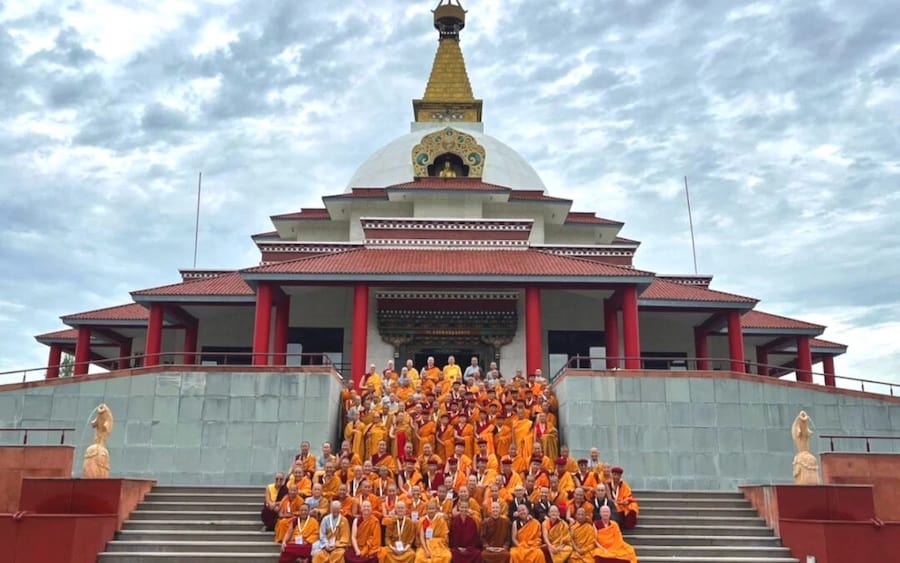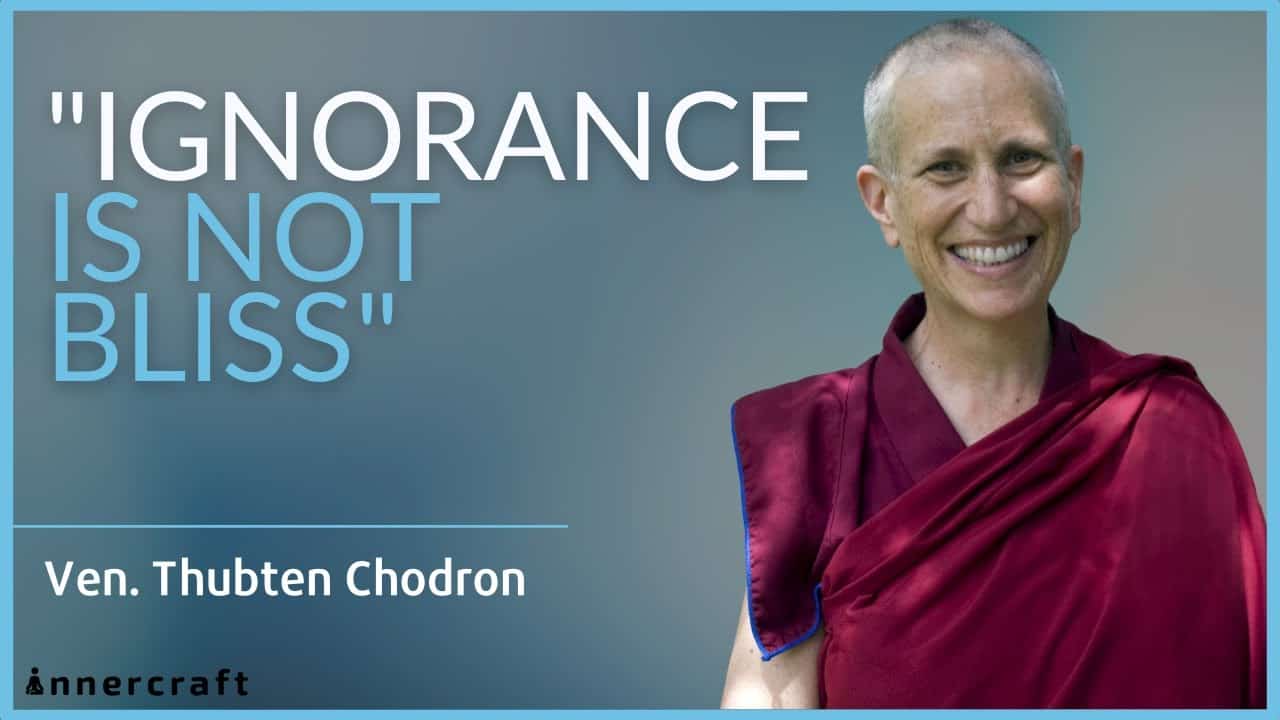Nine similes for Tathāgatagarbha
121 Samsara, Nirvana, and Buddha Nature
Part of an ongoing series of teachings (retreat and Friday) based on the book Samsara, Nirvana, and Buddha Nature, the third volume in The Library of Wisdom and Compassion series by His Holiness the Dalai Lama and Venerable Thubten Chodron.
- Importance of making efforts to benefit others
- Remembering the kindness of others
- Afflictive obscurations and cognitive obscurations
- First simile: beautiful buddha image in a decaying lotus
- How seeds of attachment obscures the buddha nature
- Second simile: honey surrounded by swarm of bees
- Buddha nature obscured by seeds of hatred, anger, resentment and vengeance
- Becoming free from the afflicted states of mind
- Naturally abiding buddha nature and transforming buddha nature
Samsara, Nirvana, and Buddha Nature 121: Nine Similes for Tathāgatagarbha (download)
Contemplation points
- Think of a time when you didn’t feel like doing something virtuous. Consider the impact it would have had on the lives of others in the short and long term. How might your life be different if other people hand’t done some small thing that ended up making an enormous and positive difference in your own life. How might thinking in this way give you energy to bear some difficulty as you live and share the Dharma and make efforts to create virtue?
- Spend some time considering how you benefit from others – those who helped you both in your childhood and as an adult, people who have been friends, mentors, etc, even those who are strangers to you. Get a feeling for how much benefit you have received in your life and allow a wish to repay the kindness of others to arise naturally in your heart. Consider how thinking in this way counters the dissatisfied mind and makes you feel joyful.
- Take some time to visualize the first simile for Tathāgatagarbha: a beautiful buddha image in an old, ugly lotus. Not knowing the image is there, we don’t think to open the petals and take it out. Similarly the seeds of attachment obscure our buddha nature which is the source of all hope and confidence. Without awareness of our potential, we become totally engrossed in the objects of our attachment, misapprehend how they exist, and are thus perpetually plagued by the dissatisfied, unhappy mind. Out of Buddha’s great compassion he can guide us, helping us see our potential and take advantage of the opportunity to practice the path. Take a moment to consider how the Buddhas and bodhisattvas may be trying to help you but you can’t see it. What can you do in your life now to open your mind to their help: to be benefitted by the holy beings, recognize your potential, and allow the hope and confidence that arises from that awareness to fuel your practice? How would thinking in this way transform the way you approach your life, your experience, and the beings around you?
- Visualize the second simile: buddha essence is like honey with a swarm of bees surrounding it. Bees not only conceal the honey, but also angrily sting someone who tries to take it, harming themselves as well as their enemy. Similarly, we cannot see our honey-like buddha essence because it is obscured by the seeds of hatred, anger, resentment, and vengeance. Consider: Are you happy when you’re in that state of mind? When we get angry, it’s like being in the middle of that swarm of bees. Allow compassion for yourself and others to arise. Consider how the Buddha shows us a very different way of being, freedom from these afflicted states of mind. Look deep inside and reconnect with the truth of your potential, your natural and transforming buddha nature, and allow a sense of hope and confidence arise.
Venerable Thubten Chodron
Venerable Chodron emphasizes the practical application of Buddha’s teachings in our daily lives and is especially skilled at explaining them in ways easily understood and practiced by Westerners. She is well known for her warm, humorous, and lucid teachings. She was ordained as a Buddhist nun in 1977 by Kyabje Ling Rinpoche in Dharamsala, India, and in 1986 she received bhikshuni (full) ordination in Taiwan. Read her full bio.


